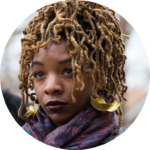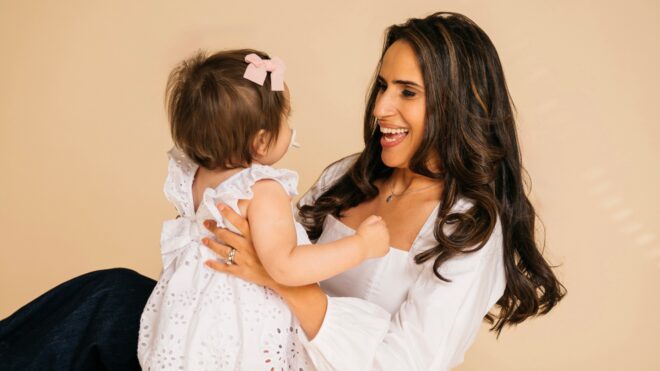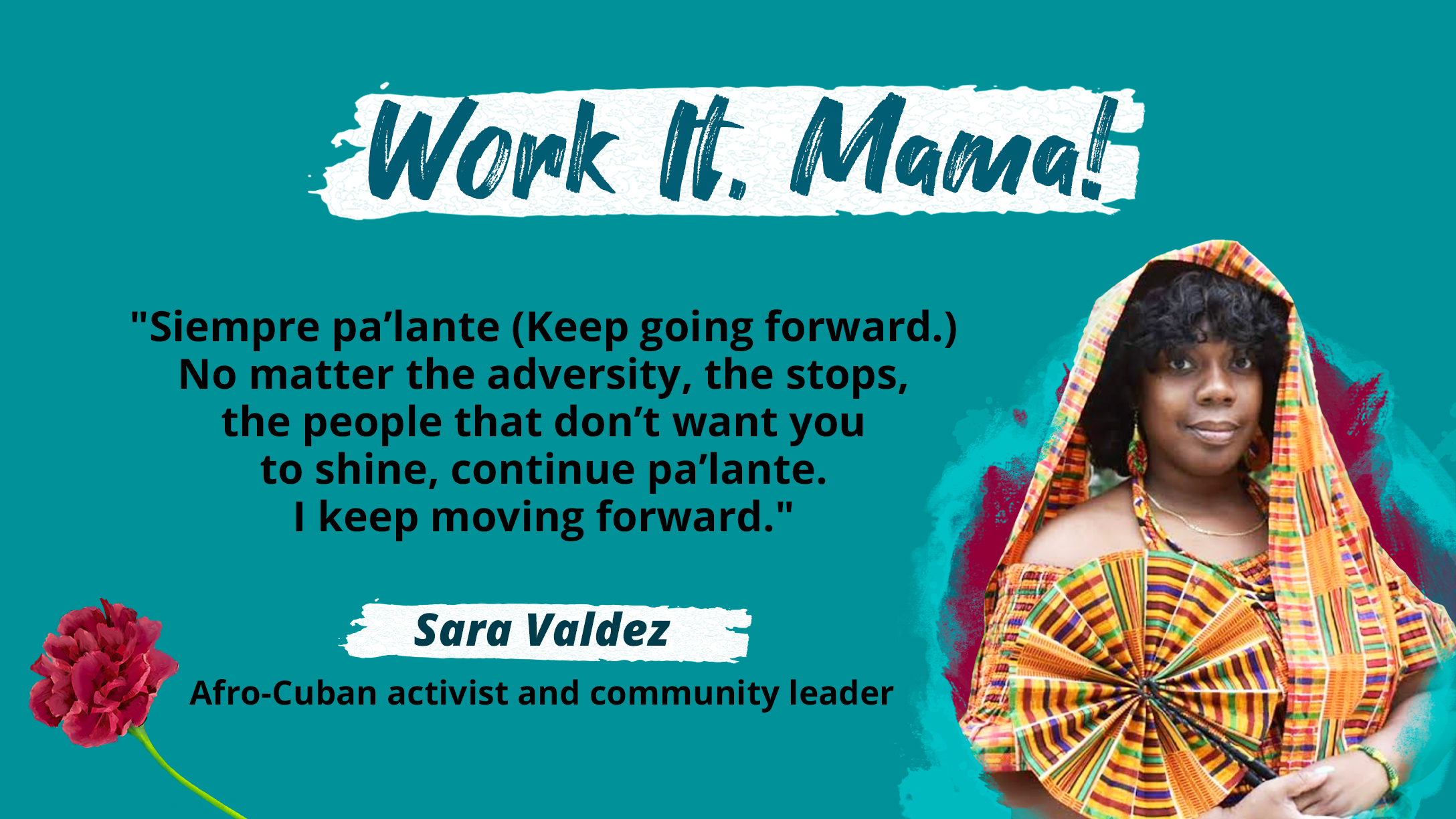
In CafeMom's monthly series, Work It, Mama, powerful moms detail how they navigate their professions and home life.
Today, when you hear the words Afro Latina, they likely produce an image in your mind. You may see Celia Cruz, Sunny Hostin, or Cardi B. The Afro Latinx community — the largest group of people in the African diaspora — have been around for centuries. But there wasn’t always language to describe their special intersections of identity.
Sara Valdez, the daughter of Cuban immigrants, was greatly impacted by that lack of language. Sara’s parents moved to the United States in 1980. Along with the hopes and expectations they carried for their new life, Sara’s mother was expecting a baby. Sara was born in New Jersey later that same year.
Growing up in the US, Sara who is now a mom of four boys, realized that there wasn’t a place for her. “Back in the days, there was no such thing as Black Latinos,” Sara explained. “There’s not a lot of support for Black girls like me. And I’m talking about [within] the Latino community.”
More than just a lack of representation in popular culture and exclusion from the larger community, Sara was also met with complete ignorance.
“For example, if I go to the store and I speak Spanish, they’ll tell me, ‘How did you learn Spanish?’ And I’ll say, ‘My parents are Cuban.’ And they’ll say, ‘I’ve never seen a Black Cuban before.’ You get a lot of that. It’s like we don’t exist.”
More from CafeMom: How One Mom Used Innovation To Turn Her Passion for Yoga Into a Successful Business
Thankfully, Sara was able to find community among different cultures.
“Through the Black community here in the States, I learned who I am as a person. I’m a Black woman first. And then my Latinidad comes second,” Sara says. “I say that because when you walk into a room, people see complexion. They see who you are as a person. So I’ve had to navigate through society as a Black woman and then a Latina.”
Sara learned African and Black diaspora history from Black Americans, Jamaicans, and Haitians. Her education helped her become more secure in her personal identity.
“You have to learn your history. That’s how you come to the conclusion that I’m Afro Cuban versus saying Latina. Because they’ll always remind you that you’re not just Latina," she explained.
In 2017, with the goal of sharing the knowledge and history she had learned, Sara launched Afro Latina World: Women Voices of the Diaspora.
Boasting nearly 9,000 members, Sara started Afro Latina World on Facebook, with the intent to learn from all Afro-descendant and Afro-Indigenous people. The group acknowledges that Afro-descendants have had to confront obstacles due to discrimination and prejudice in both public and private institutions. The group affirms that because of centuries of racism, including enslavement and the denial of rights, Afro Latinas and their contributions to cultural heritage, all over the world, have gone unrecognized.
Living and working in Miami, Sara has taken Afro Latina World into the real world. “We host cultural events,” Sara tells CafeMom. “We teach children how to dance rumba, salsa, and Merengue. We provide classes for anyone who is interested in learning African history, the history of Black people in South America, Central America. We provide those classes.”
In addition to her advocacy work, Sara is also the mother to four boys. She is convinced that her work in the culture will ensure that they don’t have to grow up like she did.
“They don’t feel lost. They have a place where they can fit in. They don’t feel like outsiders,” Sara says.
More from CafeMom: Mom of 4 & 'Next Level Chef' Star Omi Hopper Is Creating a Legacy She Never Expected
The work Sara does can be taxing. She’s fighting against centuries of indoctrination and current day systems actively working to oppress and suppress the women she hopes to empower.
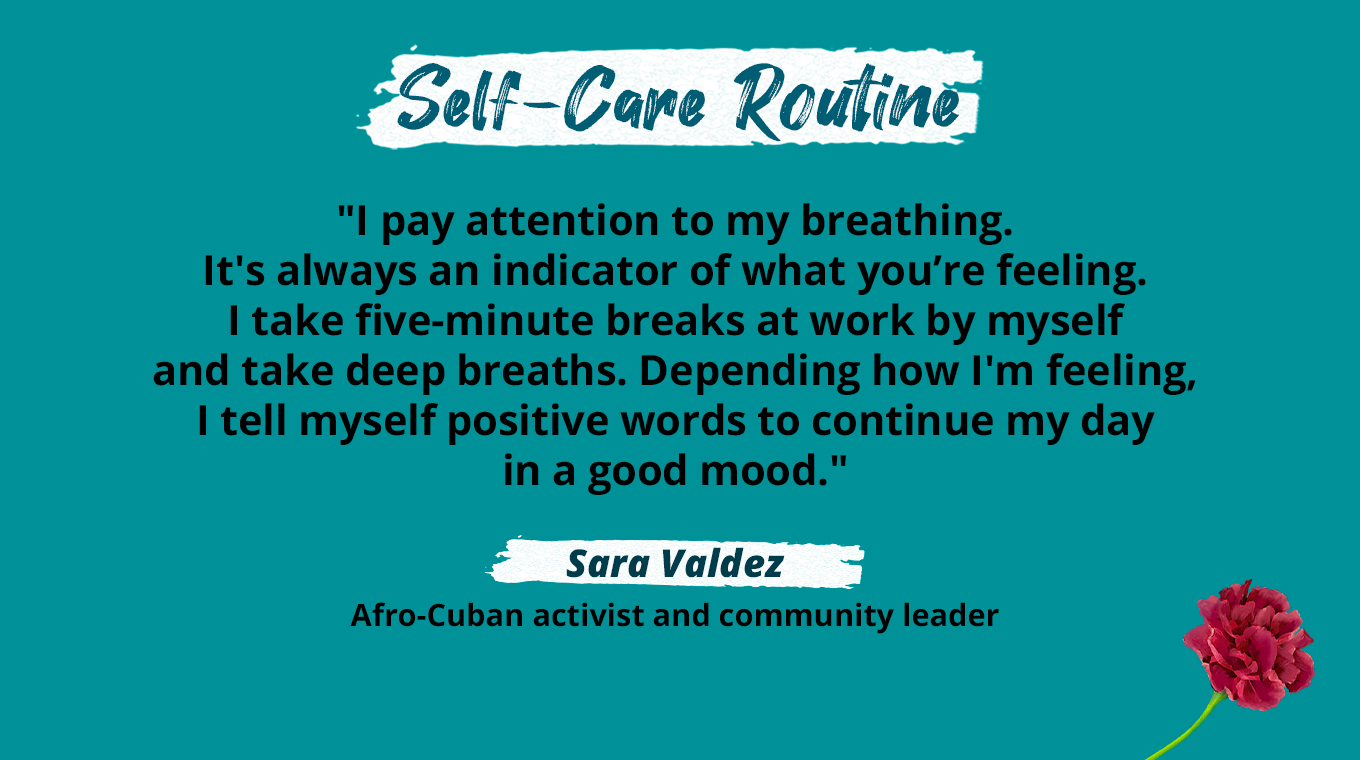
So it’s important that she remain grounded personally so she can show up and help others. For that she relies on her spirituality, both through the forms of organized religion, ritual, and a simple practice we can all implement.
Her religion is called Lucuimi or regla de Ocha. It’s an African Traditional Religion, with Yoruba origins, once practiced by those who were enslaved. The traditions, which began in Cuba, have now spread to various parts of the world.
“Ocha aids with mental health, body and soul by "limpieza" (cleaning) or head rotations,” Sara explains. “For example every Sunday I’lI take white flowers, with goat milk, and Florida water to remove negative thoughts and give me clarity to begin the week grounded for what lies ahead.”
As for her day to day practices of self-care, Sara simply breathes.
“I pay attention to my breathing. It's always an indicator of what you’re feeling,” Sara says. “I take a five-minute break at work by myself and take deep breaths. Depending on how I'm feeling, I tell myself positive words to continue my day in a good mood.”
Including her sons in her work has helped Sara balance both motherhood and activism.
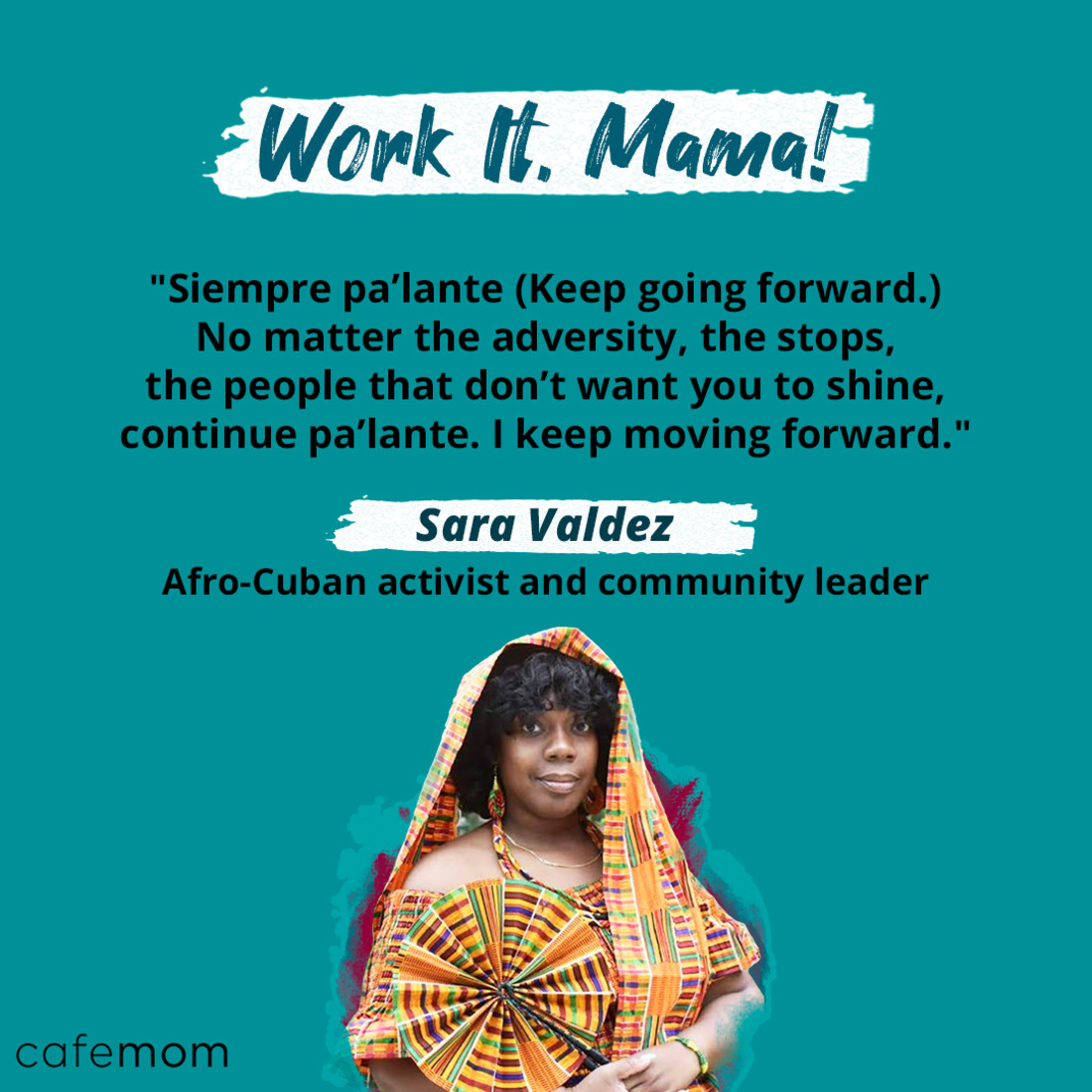
“I try to combine it. The type of work I do, I want them to be involved,” Sara says. “Maybe one day they’ll continue doing the work of the organization and the legacy of our family. I think it’s important to teach our communities and surrounding areas our history. My focus is children but it’s open to everybody. The education starts at home first. If you teach your kids right, I think it makes a better world for all of us.”
Sara has worked to create a better world in giving back. Last year, Sara and Afro Latina World traveled to Cuba for a week. While there, they distributed feminine hygiene products and food. The organization plans to return to Cuba again this year and eventually expand to Colombia and Venezuela in the future.
Sara’s goal is to connect Afro Latinos all over the world.
Despite all of this positive work, anti-Blackness persists globally. There are consistent and persistent examples of it by the hour. But Sara is undeterred.
She lives by the motto siempre pa’lante (Keep moving forward.) “No matter the adversity, the stops that might come, the people that don’t want you to shine and bring education to the communities, continue pa’lante. Don’t let no one stop you. I keep moving forward and continue bringing out the word in a teaching and loving manner.”
